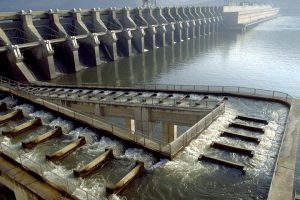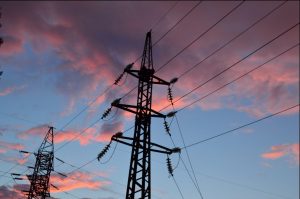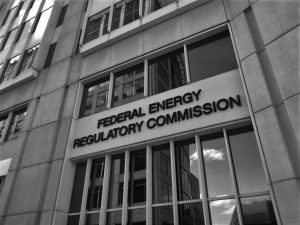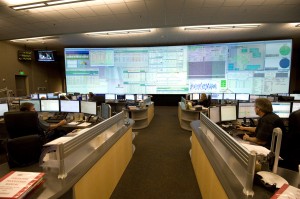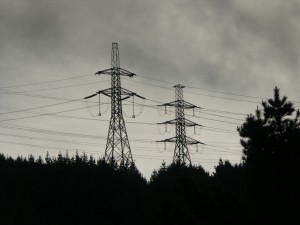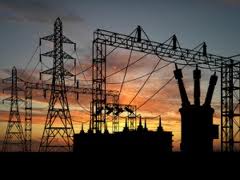14 item(s) were returned.
Director, Market Development & Business Affairs
Whooshh Innovations
Several years ago, the Department of Energy (DOE) issued a report on the energy potential of the thousands of non-powered dams in the US. With a significant number of untapped sources readily available, it makes sense to consider how we can utilize more of this emissions-free resource by “unleashing hydropower”. Many companies have attempted to shepard one of the more than 80,000 non-powered dams through the hydropower licensing process at the Federal Energy Regulatory Commission (FERC) only to find that unanticipated obstacles can arise like the requirement for fish passage. Often, FERC imposes a condition on the issuance of a… [more]
View InsightChair, Energy & Commerce Subcommittee on Environment & Climate Change, U.S. House of Representatives
Co-Chair, Sustainable Energy & Environment Coalition
In October 2012, Superstorm Sandy wreaked havoc on the northeastern United States. Today, more than five years later, we are only just beginning to see the benefits of long-term recovery efforts coming to fruition, as states and utilities invest in smarter, more resilient grid technologies. It has taken time but a number of states, including my home state of New York, are deploying microgrids and storage resources, and valuing localized generation appropriately while also hardening traditional transmission and distribution infrastructure. These investments will help the grid withstand and recover from future catastrophe, whether a natural disaster, cyber attack, or act… [more]
View InsightPresident & CEO
The Electricity Consumers Resource Council
On January 8, the Federal Energy Regulatory Commission (FERC) voted unanimously to reject the Department of Energy’s (DOE) proposed rulemaking on grid reliability and resilience pricing. The rule would have provided cost recovery to power plants holding 90 days of on-site fuel supply. Only nuclear and select coal facilities would have qualified. Rather than create a new power market product or refine the pricing rules of existing products, the proposal departed from principles of electricity market design by subsidizing power plants with a specific characteristic. FERC’s ruling confirmed that both the goal – promoting 90 days of on-site fuel –… [more]
View InsightCofounder
Spark Library
In late September, the Department of Energy (DOE) issued a Notice of Proposed Rulemaking (NOPR) for consideration by the Federal Energy Regulatory Commission (FERC). Using §403, a little-used provision in the DOE Organization Act of 1977, Secretary Perry proposed that FERC, an independent agency, exercise its authority to establish just and reasonable rates for wholesale electricity sales in the name of grid resiliency. Specifically, the NOPR requires ISO’s and RTO’s create special cost of service compensation for certain types of generation that DOE alleges are essential to protecting grid reliability and resiliency. Facilities would be eligible for this special, non-market… [more]
View InsightCofounder
Spark Library
In the last twenty years, the United States has been in the process of restructuring its electricity generation. Today, wholesale electricity markets are controlled by regional transmission organizations (RTO) and independent system operators (ISO) that direct electric grid operations and run day-ahead and real-time pricing. These grid operators, which are regulated by FERC, now oversee more than two-thirds of America’s bulk power system and are meant to create value by improving system reliability and lowering electricity costs. However, there are serious questions about whether RTOs/ISOs are operating efficiently. Areas of concern include 1) whether reliability is improving and costs are… [more]
View InsightChair, Energy & Commerce Subcommittee on Environment & Climate Change, U.S. House of Representatives
Co-Chair, Sustainable Energy & Environment Coalition
On a hot day in August 2003, a stretched transmission line tripped after dipping into an overgrown tree in Ohio. Soon after, multiple transmission lines nearby also tripped beginning what would become the second-largest blackout at that time in history, impacting eight Northeastern states and Southern Canada. Since this massive blackout and concerns about grid reliability, power generation in the United States has changed dramatically both in form and quantity. In 2005, Congress recognized the need for mandatory grid reliability standards and expanded the Federal Energy Regulatory Commission’s (FERC) authority to regulate the bulk power system. However, despite FERC’s efforts… [more]
View InsightChairman
Foundation for Resilient Societies
Through the Energy Policy Act of 2005, Congress formed a hybrid system for setting electric grid reliability and security standards; a private corporation, the North American Electric Reliability Corporation (NERC), writes grid standards, while a government agency, the Federal Energy Regulatory Commission (FERC) reviews and approves NERC’s standards. FERC and NERC appear to have a close working relationship in jointly developing grid standards. During an April 10, 2014 Senate Energy Committee hearing “Keeping The Lights On—Are We Doing Enough To Ensure The Reliability And Security Of The U.S. Electric Grid?” both Cheryl LaFleur, Acting Chair of FERC, and Gerry Cauley,… [more]
View InsightState Representative
Maine State Legislature
At the December 6, 2013 Dupont Summit Conference of the Infragard EMP-SIG, presenters highlighted technologies and policy recommendations aimed at protecting the electric grid against potentially catastrophic events, such as a solar storm or the detonation of an electromagnetic pulse (EMP) weapon. An important policy question that arose from these presentations was whether electric utilities should remain the primary source of expertise and new reliability standards to mitigate risks of grid collapse and associated grid blackouts? Should states act to set state reliability standards to protect grids from solar storms and other EMP hazards, absent preemption by federal reliability standards? … [more]
View InsightState Representative
Maine State Legislature
On June 11, 2013, the State of Maine passed the first legislation in the nation to protect the electric grid against electromagnetic pulse (EMP) and geomagnetic disturbance (GMD). EMP’s, such as high-altitude nuclear explosions, and GMD’s, such as major solar flares and storms, have the potential to critically disrupt or destroy the electric grid. In March 1989, a moderate solar storm hit Quebec, Canada, causing a province-wide blackout that cost two billion dollars in direct damage, and scattered effects throughout the northeast United States. The Maine legislation that I sponsored, LD 131, “Directing the Public Utilities Commission To Examine Measures… [more]
View InsightA recent hearing of the Energy and Power Subcommittee discussed the regulatory, market and legal barriers to exporting Coal and LNG. Critical issues were the length of time associated with the permitting process as well as the economic and climate impacts associated with the exports. Christopher Smith, Principal Deputy Assistant Secretary and Acting Assistant Secretary for Fossil Energy at the DOE, testified that most of the foundation has been built and that future approvals should be expedited. Jeff Wright, Director, Office of Energy Projects at FERC, stated that many of the delays experienced were the result of filers submitting incomplete… [more]
View Insight